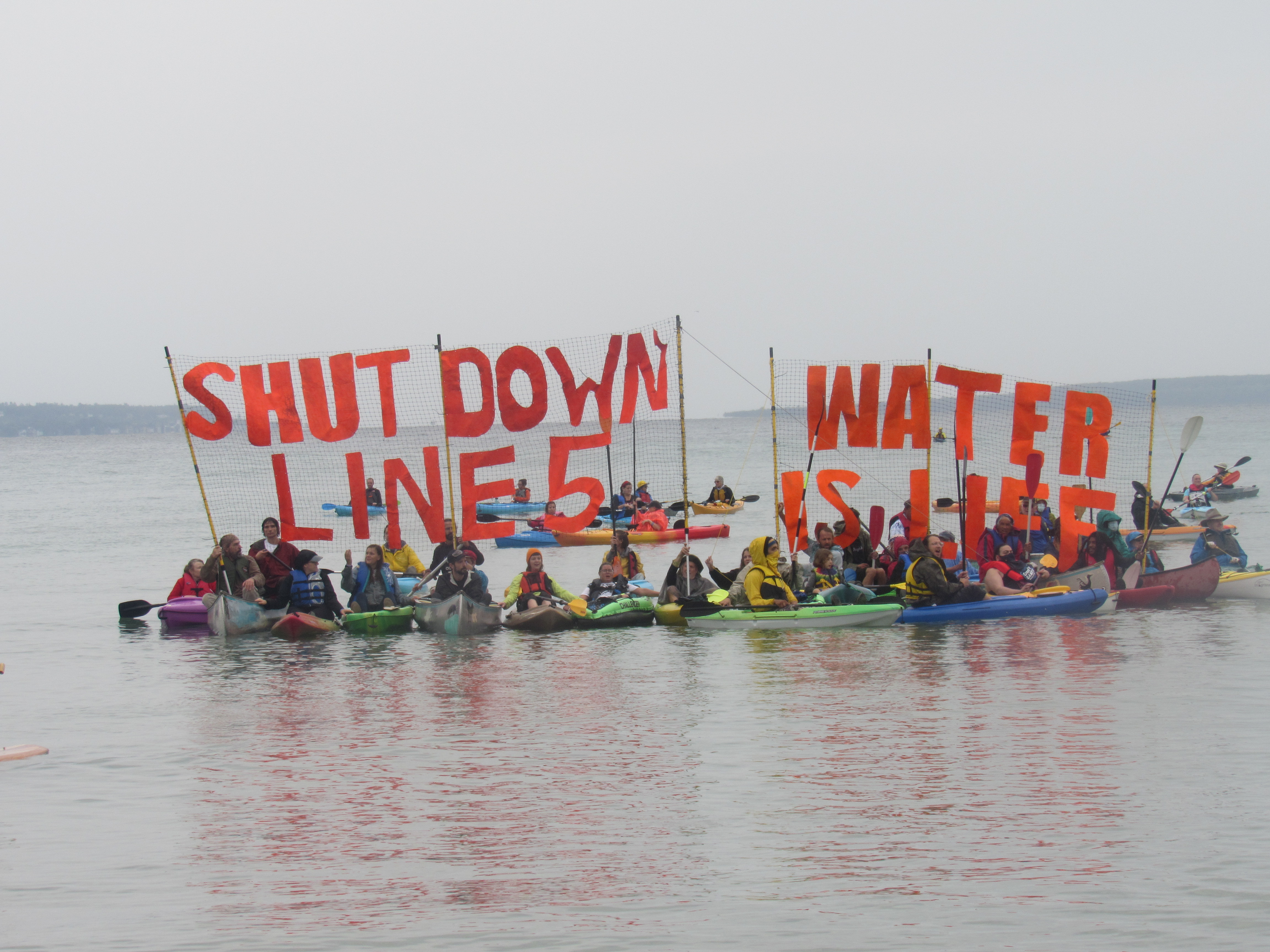
- Details
- By Native News Online Staff
Ten Michigan Tribal Nations have filed an amicus brief urging the U.S. Supreme Court to reject Enbridge’s “underhanded procedural tactics” in the ongoing legal fight over the Line 5 oil pipelines.
The lawsuit, filed by Michigan Attorney General in 2019, seeks to shut down the aging Line 5 dual pipelines that run through the Straits of Mackinac, citing the state’s public trust responsibility. After Michigan secured an initial favorable ruling in state court, Enbridge attempted to move the case to federal court more than two years after the legal deadline. While a federal district court accepted the case, the U.S. Court of Appeals for the Sixth Circuit sent it back to state court. Enbridge has now asked the Supreme Court to intervene.
The Straits of Mackinac, located in the heart of the Great Lakes, are sacred to Anishinaabe people who have lived in Michigan for generations. Tribes warn that an oil spill from Line 5 could devastate Tribal lifeways and contaminate drinking water for more than 40 million people.
“The continued operation of Line 5 puts my Tribal Nation in grave danger,” said Whitney Gravelle, President of the Bay Mills Indian Community. “These waters are the heart of creation for the Anishinaabe — where our stories begin and our ancestors still speak. Enbridge’s deployed stall tactics threaten all that is sacred. Michigan made the right choice to end this pipeline, and we stand with the Attorney General to defend our rights, our waters, and the future of the Great Lakes for the next seven generations.”
The Tribes, represented by Earthjustice, include Bay Mills Indian Community, Grand Traverse Band of Ottawa and Chippewa Indians, Hannahville Indian Community, Keweenaw Bay Indian Community, Lac Vieux Desert Band of Lake Superior Chippewa Indians, Little River Band of Ottawa Indians, Little Traverse Bay Bands of Odawa Indians, Nottawaseppi Huron Band of the Potawatomi Tribe, Pokagon Band of Potawatomi, and the Sault Ste. Marie Tribe of Chippewa Indians.
“Enbridge missed a court deadline by more than two years, without excuse, and now they want to change the rules,” said Earthjustice Supreme Court Counsel Caroline Flynn. “The Supreme Court should see through Enbridge’s transparent attempt at gamesmanship.”
The brief also draws on lessons from the 2010 rupture of Enbridge’s Line 6B, which spilled 840,000 gallons of crude oil into the Kalamazoo River, causing over a billion dollars in cleanup costs. Experts warn that the older, riskier Line 5 pipelines could threaten more than a thousand miles of Great Lakes shoreline if a spill occurs.
More Stories Like This
Gwich'in Tribal Governments Submit Comments Challenging Fish and Wildlife Service's Inadequate Environmental Review of Arctic Refuge Snow RoadRappahannock Tribe Challenges 9M-Gallon Water Plan
Feds release draft long-term plans for Colorado River management
Apache Leader Walks 60 Miles to Court Hearing That Will Decide Fate of Sacred Oak Flat
Rappahannock Tribe Raises Sovereignty and Environmental Concerns Over Caroline County Water Permit
Help us defend tribal sovereignty.
At Native News Online, our mission is rooted in telling the stories that strengthen sovereignty and uplift Indigenous voices — not just at year’s end, but every single day.
Because of your generosity last year, we were able to keep our reporters on the ground in tribal communities, at national gatherings and in the halls of Congress — covering the issues that matter most to Indian Country: sovereignty, culture, education, health and economic opportunity.
That support sustained us through a tough year in 2025. Now, as we look to the year ahead, we need your help right now to ensure warrior journalism remains strong — reporting that defends tribal sovereignty, amplifies Native truth, and holds power accountable.
 The stakes couldn't be higher. Your support keeps Native voices heard, Native stories told and Native sovereignty defended.
The stakes couldn't be higher. Your support keeps Native voices heard, Native stories told and Native sovereignty defended.
Stand with Warrior Journalism today.
Levi Rickert (Potawatomi), Editor & Publisher


